MEDIA POWER IN CENTRAL AMERICA
THE HISTORY OF COMMUNICATION
Robert W. McChesney and John C. Nerone, editors
A list of books in the series appears at the end of this book.
RICK ROCKWELL AND NOREENE JANUS
Media Power in Central America
________________________________________________
UNIVERSITY OF ILLINOIS PRESS
URBANA AND CHICAGO
2003 by the Board of Trustees
of the University of Illinois
All rights reserved
Manufactured in the United States of America
c 5 4 3 2 1

This book is printed on acid-free paper.
Library of Congress Cataloging-in-Publication Data
Rockwell, Rick J., 1958
Media power in Central America / Rick J. Rockwell
and Noreene Janus.
p. cm. (History of communication)
Includes bibliographical references and index.
ISBN 0-252-02802-3 (cloth : alk. paper)
1. Mass mediaPolitical aspectsCentral America.
2. Mass mediaEconomic aspectsCentral America.
3. DemocracyCentral America.
4. United StatesForeign relationsCentral America.
5. Central AmericaForeign relationsUnited States.
6. Central AmericaPolitics and government1979
I. Janus, Noreene. II. Title. III. Series.
P95.82.C35R63 2003
302.23'09728dc21 2002010964
To John and Isabelle
N.J.
To the memory of Greg Weisz, for putting me on the path
R.R.
We journalists believe in the rather Jeffersonian ideal that if we unearth the facts, and give people in a free society the information they need, democracy will flourish.
Philip J. Trounstine, San Jose Mercury News
Contents
Acknowledgments
We wish to acknowledge the role Sanford Ungar played in shaping this book project. While he was the dean of the School of Communication at American University, Ungar secured a project to review aspects of Central American media. This project brought us together as researchers for the first time and laid the groundwork for this book. Ungar was also instrumental in helping us find a publisher interested in our work. Thanks, Sandy.
We also want to thank our editor, Dick Martin, at the University of Illinois Press, for his patience and encouragement.
In addition, we thank Albasari Caro, who exactingly translated many of our interview tapes and gave us helpful advice as we wrote the book, as well as providing research assistance. We want to acknowledge the research work of Dylana Segura, at La Nacin (San Jos), who helped us shape the sections of the book dealing with Costa Rica by sharing her interview tapes. We want to thank Kristin Neubauer for her help in Nicaragua. We also wish to thank Andr Verly, Juan Cristobal Villalobos, and Gloriana Guillen for their research assistance.
This book was produced after eight trips to Central America from 1998 through 2001. During those trips we conducted more than 250 interviews. We wish to thank all those interviewed for giving their time and their thoughts. For his advice on interview subjects, Bill Douglas, of World Learning, deserves special recognition. We thank Bill for his interest, participation, and logistical support.
Noreene wishes to thank Harold Moore, who gave us the keys to the Nicaraguan media world in the form of Roger Solarzano Gaitan. Noreene wishes to acknowledge the memories of Herb Schiller and Jorge Schnitman, who were there at the beginning and who would have loved this book; they were always deeply interested in the people, issues, and struggles it covers. Noreene also wishes to thank John Clark for his love, enthusiasm, and encouragement.
In addition, Rick wishes to thank Wendy Swallow and Wendell Cochran, of American University, who were extremely understanding about balancing research needs against the needs of the institution; Rodger Streitmatter for his sage advice; and Patricia Aufderheide for her counsel. Rick also wishes to credit Declan MacManus for the inspiration and Amy Luther for her eternal patience and love.
Abbreviations
AOL | America On-Line |
APES | Salvadoran Press Association |
APG | Association of Guatemalan Journalists |
ARENA | National Republican Alliance (El Salvador) |
Banaico | Panamanian Agro-Industrial and Commercial Bank |
CANATEL | Costa Rican National Chamber of Television |
CBS | Columbia Broadcasting System (U.S.) |
CNN | Cable News Network (U.S.) |
CONATEL | Honduran Communications Commission |
COSUFFAA | Honduran Supreme Council of the Armed Forces |
CPJ | The Committee to Protect Journalists |
CVP | Cellular Vision de Panama |
ESPN | Entertainment and Sports Programming Network (U.S.) |
FCC | Federal Communications Commission (U.S.) |
FIU | Florida International University |
FMLN | Farabundo Mart Front for National Liberation (El Salvador) |
FRG | Guatemalan Republican Front |
FSLN | Sandinista National Liberation Front (Nicaragua) |
HBO | Home Box Office (U.S.) |
IAPA | Inter-American Press Association |
IMF | International Monetary Fund |
IPI | International Press Institute |
MCRL | Free Costa Rica Movement |
NGO | Nongovernmental Organization |
NPR | National Public Radio (U.S.) |
OAS | Organization of American States |
PAN | National Advancement Party (Guatemala) |
PDC | Christian Democratic Party (El Salvador and Panama) |
PLN | National Liberation Party (Costa Rica) |
PRD | Democratic Revolutionary Party (Panama) |
PRI | Institutional Revolutionary Party (Mexico) |
PUSC | Social Christian Unity Party (Costa Rica) |
PVP | Popular Vanguard Party (Costa Rica) |
SIN | Peruvian National Intelligence Services |
TCS | Telecorporacion Salvadoreo |
TVN | Televisora Nacional (Panama) |
UCN | National Union Center Party (Guatemala) |
UHF | Ultrahigh Frequency |
VHF | Very High Frequency |
MEDIA POWER IN CENTRAL AMERICA
Introduction
The cycle of history is at low tide in Central America: the small nations of the land bridge between North and South America were the strategic focus of cold war policy makers in the 1980s, but today they have seemingly dropped from the radar screen of our conscience. Notably, however, the regions civil and guerrilla wars have left an uncertain future as their legacy. With all these countries at peace, and with dictators removed from the scene, the United States has moved its attention elsewhere, to Kosovo, to Colombia, and to China.

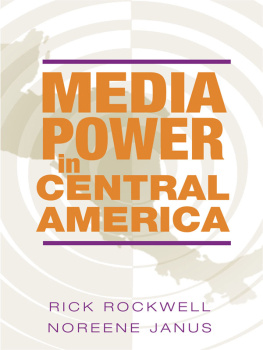

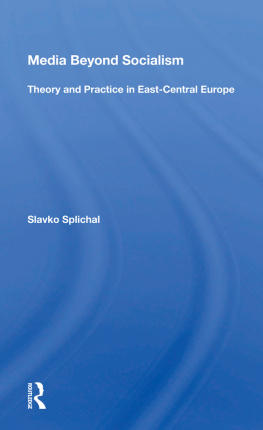
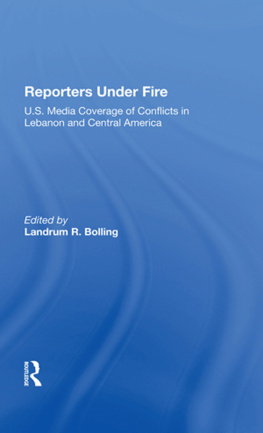
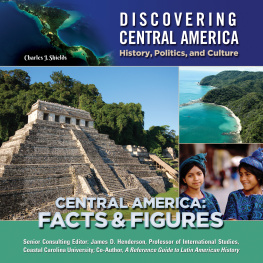
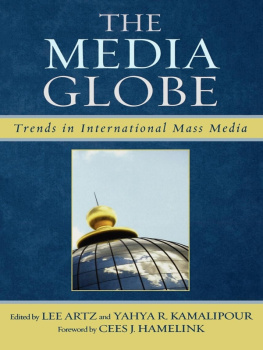
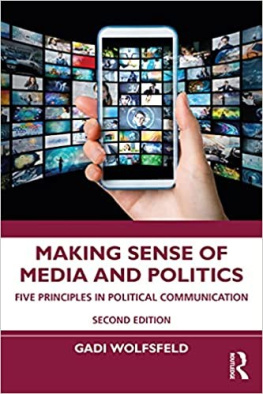
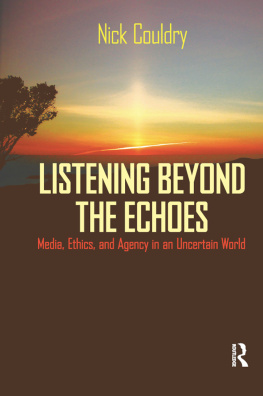

 This book is printed on acid-free paper.
This book is printed on acid-free paper.